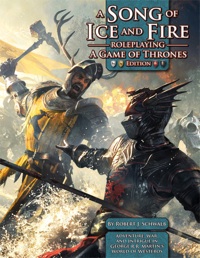silva wrote:What is more rare, I think, is the kind of wide political and intrigue web seen in pieces like Game of Thrones, where there are dozens of characters in half-dozen different factions bickering between themselves.
What's more important here than the number of characters is the general scale of things. Is it just conflict within a group or are there actual political decisions to be made that go beyond who gets to be president of the anime club?
You may notice that in GoT, entirely personal motivations like revenge or loyalty or faith are driving forces for a very minor number of characters and none of these characters get to call the shots.
Even the High Sparrow doesn't act on faith alone - he acts on turning that faith into a political reality, on toppling the established order and replacing it with a theocracy. There's a clearly defined ressource he fights over. Letting the number of his followers surpass the critical mass needed to go all Tehran 1979 on King's Landing and pull off a successful coup is his win condition. GRRM understands that you do not actually wage war over religion - even if you're a deeply faithful religious leader, you wage war over real-world power
grounded in religious zeal
as a political ressource.
The characters like Arya or Brienne who truly have entirely personal motivations aren't political actors, they are confounding variables. They may cause massive upheavals due to their personal vendetta or code of honor, but these upheavals are accidental, chaotic and may bear no resemblance whatsoever to what these characters intended.
If you want a game of politics, you basically need something to manage on the macro scale. Rules for economics, mass battles, levying troops, controlling the public opinion, building up infrastructure etc. are an absolute must.
If you don't have these, you have no reason for those dozens of characters to backstab each other in a way that deserves to be called political.
Actual politics always boil down to adjusting or maintaining power differentials.
Therefore, you need to be able to measure these power differentials to define win conditions.


